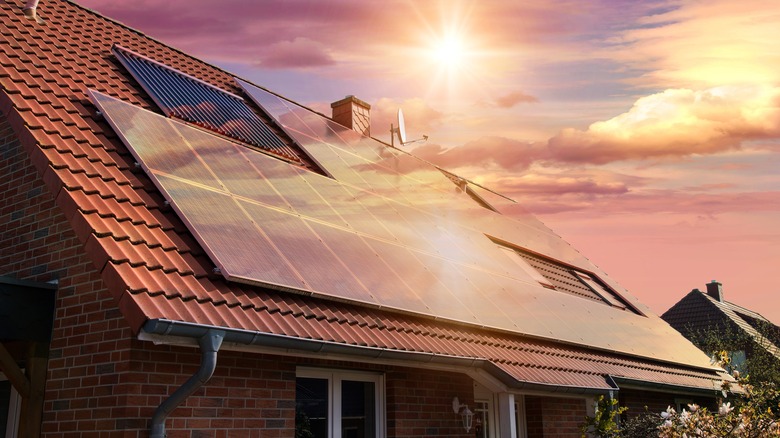Does The Solar Panel Tax Credit Really Save You Money?
With rising utility costs in many areas of the United States, finding ways to reduce power usage is always a wise decision. However, when you're ready to stop paying that electric bill altogether (or mostly), you may consider using solar energy. Solar panel systems can provide ample power for many regions of the country, and new systems are more affordable than ever. Yet, it's still a significant investment for your home.
Many people question whether the current federal and state tax incentives for solar panel installation will reduce costs to make the technology affordable. The federal tax credit will reduce the taxes you owe, and you may be able to claim as much as 30% of the cost of having your system installed. So there are potential cost savings here if you're confident solar is the right choice for your home. However, before you dive in and invest, there are a few things to know about purchasing and maintaining a solar panel system.
Understanding the federal solar panel tax credit
The federal solar panel tax credit reduces your income tax dollar-for-dollar, but it's not refundable, so you will not get a tax refund for these funds. It's always wise to speak to a professional about investments like this impacting your personal tax obligations. For example, suppose you install a solar panel system between 2022 and 2032. In that case, the savings represent 30% of the total cost of the solar PV (photovoltaics) panels or PV cells, the balance-of-system equipment, select energy storage devices, labor costs, and sales taxes on the aforementioned expenses. Data from Fixr shows that the national average cost to install solar panels is between $16,500 and $20,100. That means if you qualify for a 30% tax credit, you could save about $4,950 at the low end. The tax credit does not limit how much you can claim as long as it is no more than 30% of the total cost.
It's also worth noting that your local electric supplier and state government may offer additional savings options. You may also be able to take advantage of net metering in some areas, which may allow you to sell extra electricity generated back to your utility company. Finally, note that the federal tax credit does not apply if you lease a solar panel system (you can obtain it if you get a solar panel system loan, though).
Do solar panels really save you money?
The federal tax break is an excellent way to reduce the cost of solar panel installation if you've already decided to install one. If you're unsure whether a solar panel system is a good option for saving money, consider how it may help you. A solar panel system in a sunny environment will capture enough solar energy to power your home and charge a solar battery to power it during the dark hours if you purchase a large enough system. That means you'll no longer need to pay the utility company for your power if your system generates enough to meet your home's demands.
Most systems require minimal maintenance and can last 30 to 35 years. Eventually, they do pay for themselves and then help you save money. There are other benefits to solar panels, too, like no longer having to be reliant on the utility company or wondering how much your energy prices will rise year after year. It's also beneficial to the environment because you're not using limited natural resources to power your home — just make sure you take the steps necessary to recycle your system properly when you need to replace it. Over time, a solar panel system will save you money and offer key advantages, including a potential boost in home value. However, you'll still have to overcome the initial investment to make it worthwhile.


